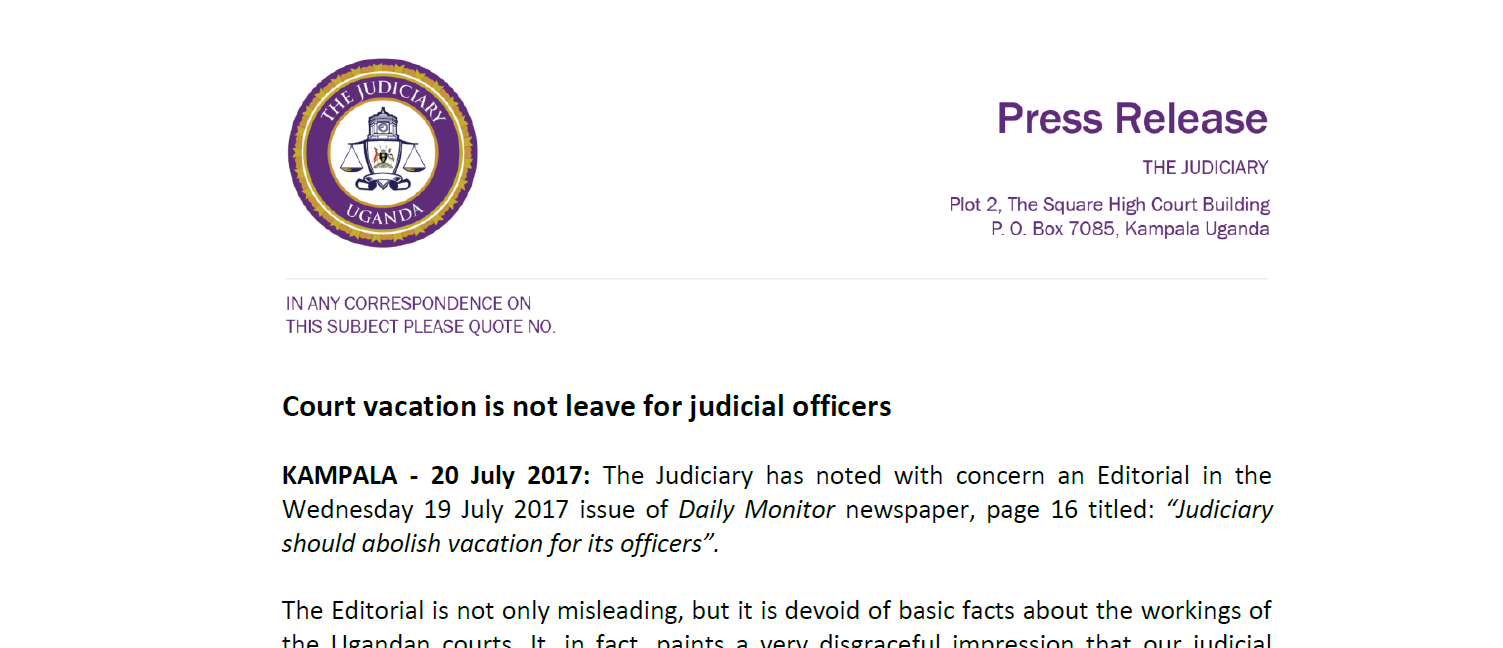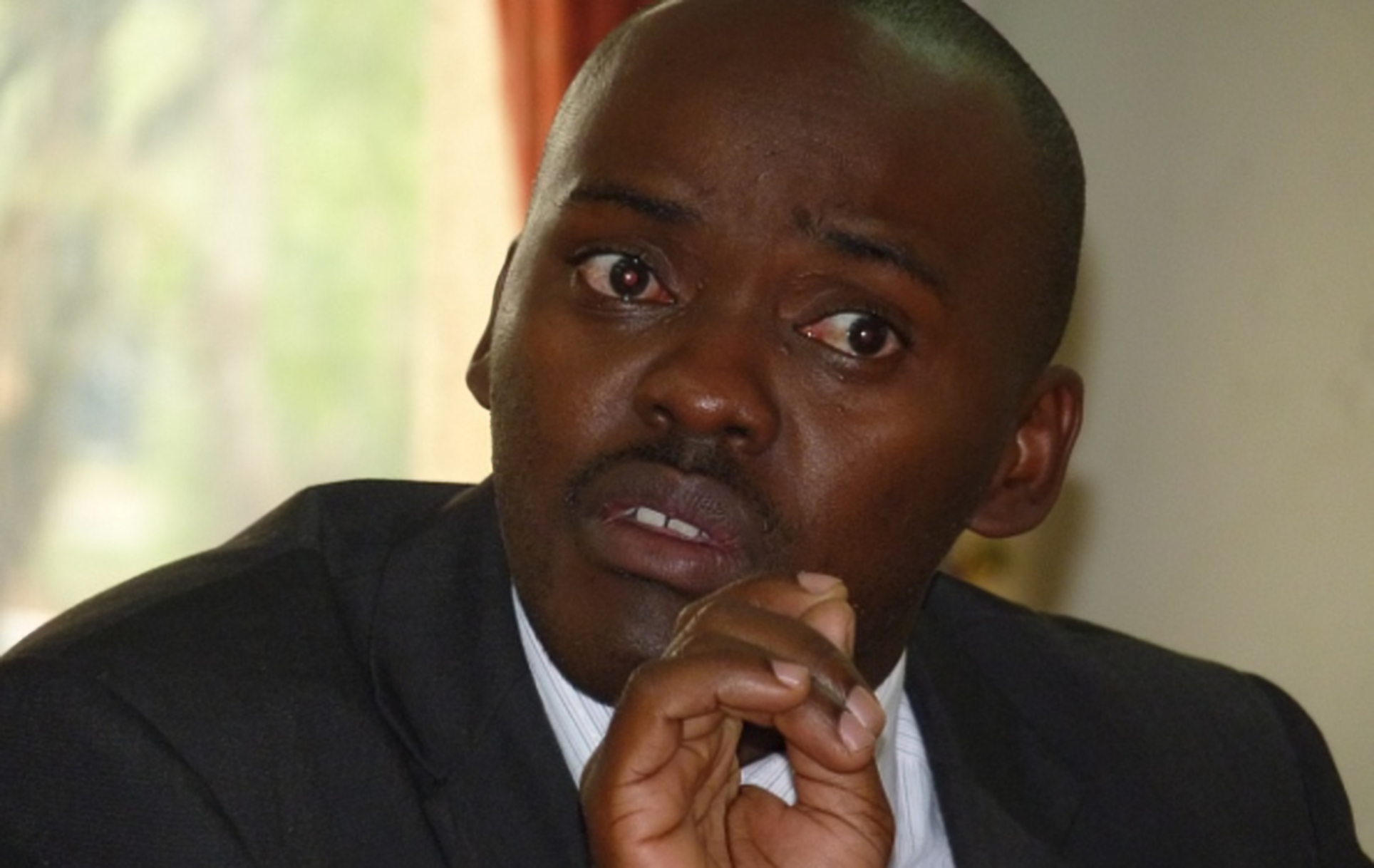Kampala, Uganda.
In a recent editorial published in the Daily Monitor newspaper, concerns were raised regarding court vacations and their impact on the delivery of justice in Uganda. The Judiciary has responded to the article, aiming to dispel any misunderstandings surrounding court vacations and shed light on their purpose and importance. This clarification aims to address the misconceptions and provide a comprehensive understanding of court vacations in the Ugandan legal system.
The Judiciary has expressed its concern over the misleading nature of the editorial and the negative impression it created about the dedication of Ugandan judicial officers. Contrary to the article’s claims, court vacations are not periods of leave for judicial officers but rather designated intervals between court terms. These vacations, outlined in The Judicature (Court Vacation) Rules, allow judicial officers to focus on essential administrative tasks and complete pending work.
During court vacations, judicial officers dedicate their time to tasks that do not require direct engagement with the public. Primarily, they focus on deskwork, such as writing judgments, reviewing previous cases, and planning for the upcoming period. Additionally, court vacations provide an opportunity to weed out inactive cases from the system, contributing to the efficient management of the court workload.
The Ugandan judicial calendar incorporates two mandatory court vacations for all courts each year. The Civil Vacation takes place between July and August, while the General Vacation occurs between December and January. The Supreme Court and Court of Appeal observe their civil vacation in August, while the High Court and Magistrates Courts follow suit from mid-July to mid-August. Throughout these vacation periods, civil cases are temporarily put on hold, except for urgent matters approved by the court.
It is important to note that court vacations do not disrupt criminal proceedings. The courts continue to hear criminal cases as usual, ensuring the uninterrupted delivery of justice. Moreover, court registries remain operational, accepting new cases and performing essential administrative functions. This ensures that the judicial system remains active, even during court vacations.
The Judiciary emphasises that it recognizes the significant backlog of cases within the system and has implemented measures to address the issue. Judicial officers often work overtime, including weekends, to meet deadlines and reduce delays. Performance targets have been set for each level of the judiciary, with a focus on case completion. Additionally, a Case Backlog Monitoring Committee has been established to monitor the implementation of recommendations aimed at reducing case backlog, including addressing delays and promoting alternative dispute resolution mechanisms.















